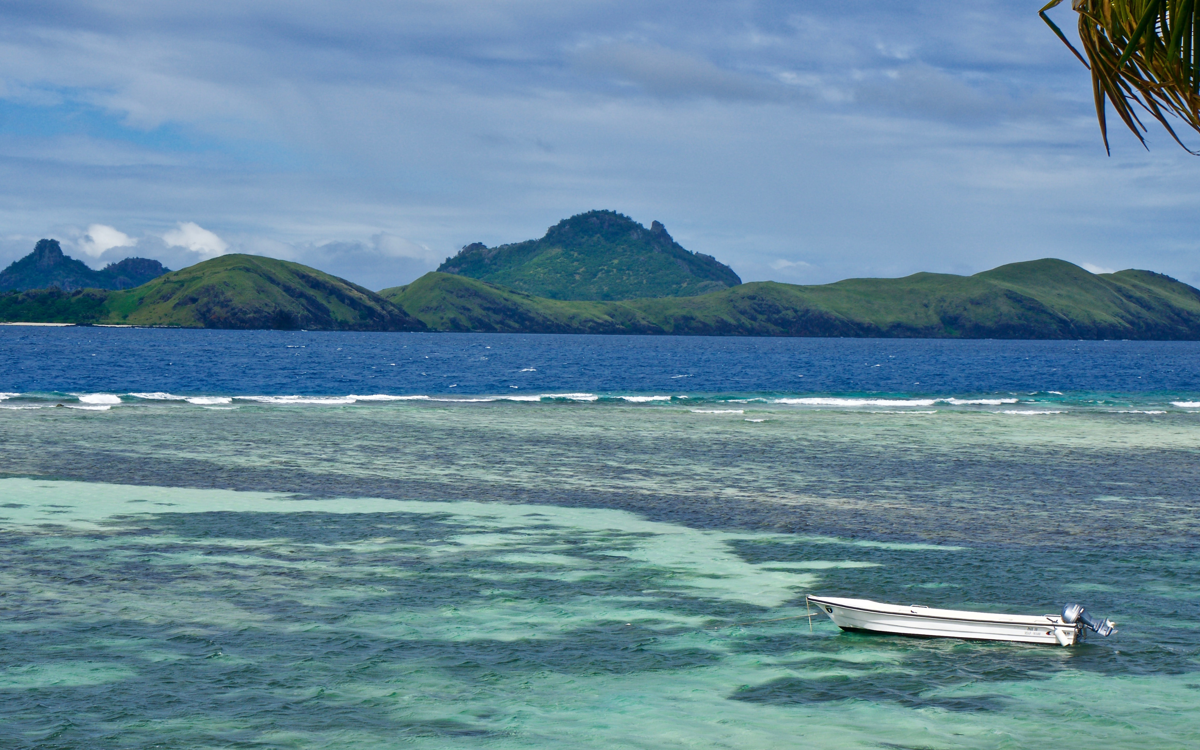
The ACU Summer School unites students from every corner of the Commonwealth to discuss multidisciplinary issues of global importance. This year’s Summer School convened students online to explore themes linked to urban disasters.
Here we have Tevita Mikaele Rakula sharing his experience of ACU Summer School 2021.
A warm Pacific greeting from Fiji. My name is Tevita and I am 24 years old. I have graduated from Fiji National University with a Bachelor of Environmental Health, and I am currently working as a WASH officer at Project H.E.A.V.E.N Trust, which provides hearing and vision screening for school children and communities.
What made you apply for the ACU Summer School?
I applied for the ACU Summer School to learn more about urban disasters, vulnerability and resilience in a pandemic. I also wanted to explore solutions and strategies in disaster risk reduction to help my home country – particularly in terms of international collaboration.
The Summer School was a great opportunity for me to work collaboratively with students in other countries, particularly in finding solutions to related international issues.
What did you find most interesting in the programme?
I found the topic of COVID-19 in urban areas, especially in Mumbai, very interesting and emotional. One of the speakers shared what happened during the greatest outbreak of COVID-19 in Mumbai. This was interesting to learn about as there are similarities with what is currently happening here in Fiji too.
How has your thinking about urban disasters changed?
The experience considerably changed the way I see urban disasters. I have come to realise that we need a significant global intervention to enforce robust strategies for the prevention and infection control of COVID-19. Interventions must factor in the homeless, the poor, and marginalised groups as they are the most vulnerable in this global outbreak and lack access to basic sanitation products and facilities.
Reflecting on your group project, can you tell us why your topic is important and the key takeaway from your work?
Our group focused on food insecurity in New Delhi. It’s important to learn and understand food insecurity because this is a current and ongoing issue right now. The pandemic has led to unemployment for a lot of people, and in some cases led them to face food scarcity. Governments face challenges with providing enough food for their populations due to rapid growth and unreliable census data. In this case study, we observed a significant pattern of people migrating from villages to cities for better education and life opportunities. This urban drifting creates food insecurity issues and the rise of homelessness in the cities. Our findings revealed that planning the right seasonal crops is essential to combating food insecurity.
It was an honour to work in collaboration with my group members as they each talked about the situation in their respective countries, and how they differed. For example, I found that food insecurity isn’t so much an issue in my country because all families have their own backyard gardens for sustainable purposes. However, this was not the case for other participants in countries that are dealing with food insecurity.
Why do you think is it important to collaborate with students from across the Commonwealth?
It’s important because through collaboration we can share diverse, cross-cultural knowledge on issues that most of the Commonwealth is facing. The ACU Summer School is a platform where we can share our experiences with diverse, knowledgeable, and skilful students from other countries.
How will your ACU Summer School experience help you in your studies?
The ACU Summer School has been a great opportunity for me to meet students from other countries and share urban disaster interests. I will apply the knowledge imparted to me both to help other people in my community as a WASH Officer, and to help my academic studies as I am planning to pursue a postgraduate degree in Disaster Management at Fiji National University next year.
Why do you believe higher education is important for building a better world?
I wholeheartedly believe in the importance of higher education. Higher education can lead to many benefits, including a prosperous career and financial security. In the 21st century, education plays an even more significant role in other aspects of your life. Attaining a higher education can increase your opportunities and improve your overall quality of life.
I believe it’s important to have higher education to transform lives, especially for the Pacific Islands and lower-income countries to grow their prospects. Higher education accelerates knowledge development in a way that helps to understand diverse cultures. This helps the way people interpret and try to solve global and local issues.
Why do you think the voices of young people are so important?
When young people rise up, amazing things can happen. Youth voices are important because decisions and policies made today will directly impact us as we become future leaders ourselves. I feel that the youth today are empowered, informed, and have the capacity to have their voices heard at the decision-making table. Youth and children account for a significant proportion of the world's population. It is therefore critical to mobilise young people in order to achieve the Sustainable Development Goals. Involving us is not just the right thing to do, but the strategic thing to do.
Thank you from Fiji.

